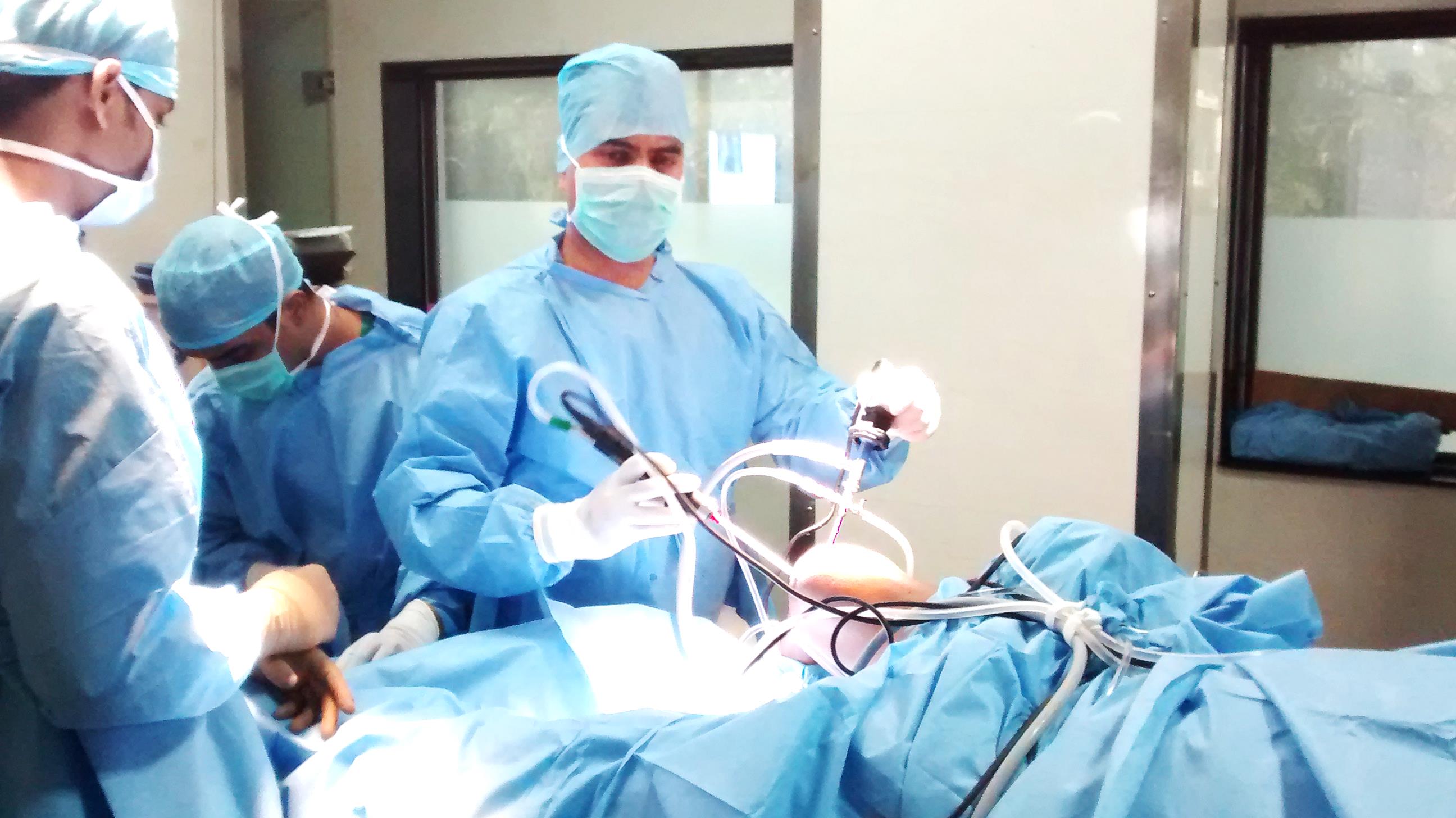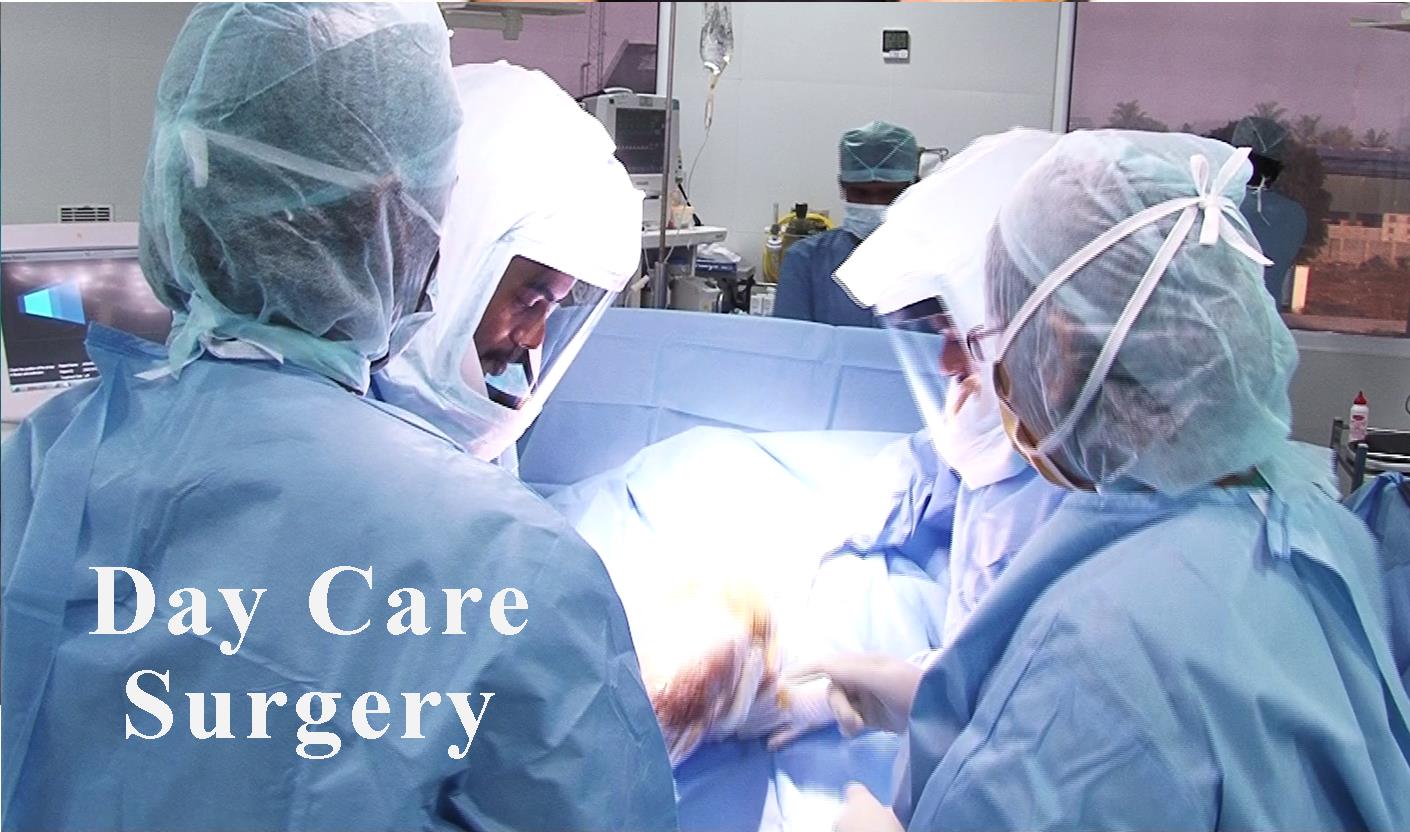
KEY HOLE SURGERY (PINHOLE SURGERY)
Arthroscopy (“key hole surgery”) of the knee is a surgical technique for looking inside the joint with a small telescope. This technique allows a good view of the joint and minor or major operations can be carried out through it.
It is particularly useful in the diagnosis and treatment of cartilage and ligament problems of the knee. The aim of arthroscopic surgery is to assess and correct the mechanical problems within your knee joint.
The surgeon is able to confirm the nature of the injury and may be able to remove or repair the damaged part without causing major disruption to the knee joint
Tags

What are the benefits of the procedure? (Tiny scar after key-Hole surgery)
The keyhole technique has the following advantages compared to open technique:
- Lower risk of complications
- Less pain after the procedure
- Shorter hospital stay & quicker recovery
- Tissue cut is very minimal & the blood loss is negligible
- Negligible or very small scar size
What are the Indications for Knee Authroscopy?
- Ligament Tears (ACL, PCL, MCL, LCL)
- Meniscal injury-repair or partial menisectomy
- Synovitis (acute or chronic)
- Arthirtis-lavage& debridement
- Loose body removel/cyst excision
- Microfracturing for condral defect
- Septic arthitis- drainage and lavage
- Patello-femoral arthritis-Chondroplasty/lateral releas
- Pain after knee replacement
- Pre patellar bursa excision
- Miscellaneous& diagnostic


Disorders and their early warnings:
Other uncommon causes for failures include.
- History of injury & pain while bending or squatting – Meniscal Tear.
- History of injury & instability while pivoting (changing direction) or playing - ACL Tear.
- Pain while climbing steps – PF Arthritis.
- Knee pain / deformity in elderly / inability to sit on the floor - Osteoarthritis.

Day Surgery.
Outpatient surgery, also known as same-day surgery or day surgery, is surgery that does not require an overnight hospital stay. Outpatient surgery has developed over the past 3 decades for a number of reasons, including the following:
- Improved surgical instruments.
- Less invasive surgical techniques.
- A team approach in preparing a person for surgery and home recovery that involves both a surgeon and an anesthesiologist.
- The desire to reduce health care costs With the completion of surgery, the anesthesia team brings the individual to a recovery room where he or she continues to awaken fully from the sedation. Recovery can take from 1 hour to few hours.
The recovery nurse monitors and treats the individual if other problems arise, such as nausea, vomiting, chills, and low or high blood pressure. An anesthesiologist is also available to assist in the recovery room.
Going Home: The individual must meet the following criteria before being released:
- Have stable vital signs (heart rate, blood pressure, breathing rate, temperature, and pain level).
- Tolerate food and drink (Tolerating food and drink is important because oral medications may need to be taken to relieve pain or to prevent infection.)
- Be able to empty bladder.
- Walk unassisted.
For further more details, contact Dr.Raj Kanna has a best experience in Key hole surgery of affordable cost in Chennai.

